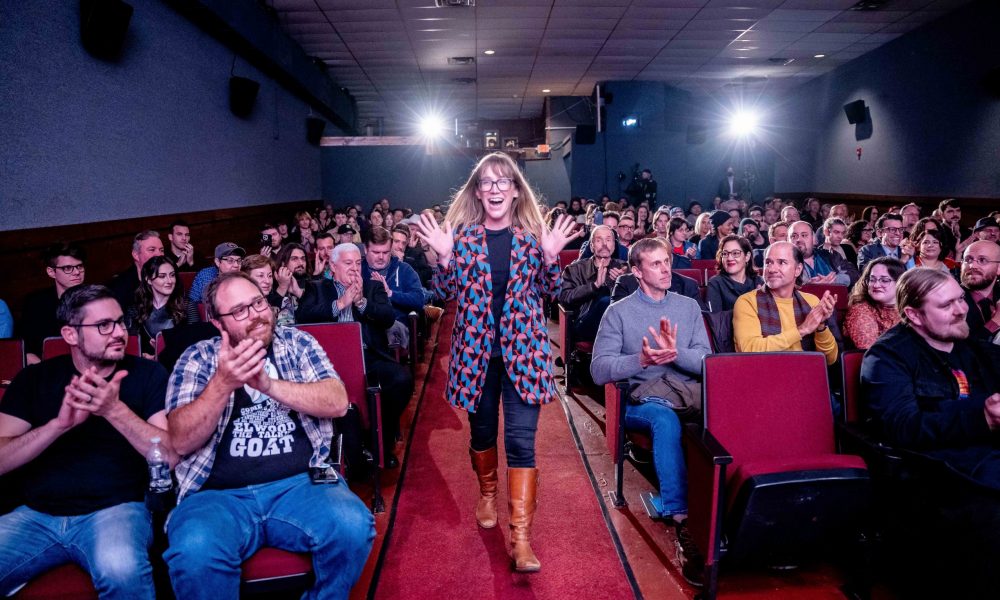

Today we’d like to introduce you to Erin Brown Thomas.
Hi Erin, can you start by introducing yourself? We’d love to learn more about how you got to where you are today?
I am a theology student turned filmmaker. I was double majoring in Theology and Philosophy in college with the intent to either go into ministry or law. As academic topics, Theology, Philosophy, and critical thinking in general appealed to me, but when I reflected upon the type of lifestyle I wanted to have, I realized I needed to pivot. Talking with lawyers, I realized legal work involves so much paperwork – even the sexy litigating jobs were going to be more reading and bureaucracy than I wanted to deal with. Additionally, though my faith has always been important to me, my sense of humor is wayyyyyyy too irreverent for most traditional ministry settings. So, in my senior year of college, I change majors.
My college, Malone University, had an amazing professor named Andrew Rudd. He founded the “Open Frame Film Festival.” He allowed me to screen a film which poked fun of some of our campus rules. It depicted people gambling, using fake IDs, drinking, etc… All this activity would be happening off campus, but the moment they continued these behaviors on campus they would be struck by lightning, etc… It was really just a silly sketch, but the underlying themes have continued to surface in my work. By compartmentalizing “on campus” and “off campus” behavior, it encouraged students to live public and private lives. This is an ongoing problem in the Christian church and you can see extreme depictions of this in the recent documentary “God Forbid” on Hulu or in the Netflix doc-series “The Family” which uncovers a “Christian” [AKA not Christian at all] cult that puppets the Republican Party. Anyhow…. the point is, as a college student I was starting to sink my teeth into a “calling” that took me out of the church in into Hollywood. A “calling” (pardon the church lingo, I’m making a point here) that would have me holding a magnifying glass to the church itself.
I moved to Los Angeles and began to make independent films. Some of my titles include “Hotwire” (director), “Rekindled” (director), “Feeling Flush” (co-writer/director), “Shedding” (producer), “But First” (co-writer/director), “A Question of Service” (director) and the entire Versatile Assassins library of aerial art films.
I started directing the moment I came to Los Angeles, but I only started writing in the past few years. This is when my faith started to make its way back into my work.
For a long time, I hid this part of myself. There are a few reasons for this. First of all, I was embarrassed. When people hear “the church” or “Christianity” their minds are often flooded with negative connotations. It’s fair. There are a lot of terrible things that people have done in the name of Christianity. That being said, those behaviors are not indicative of my experience of Jesus or most church contexts I’ve spent the last twenty-five years in. My faith is a precious and fragile part of my life. Fragile, not because it’s untested, but because I’m constantly allowing myself to wrestle with doubt and ask big questions with eyes wide open. The preciousness of my faith made me want to hide it and keep it to myself. I didn’t want to invite public scrutiny of something that was (and is) so important to me.
But alas, as I began to work as a screenwriter (how I currently make most of my living while pursuing a breakthrough in television directing), I couldn’t help but allow this part of me to seep onto the page. Two of my feature scripts deal with the context of faith. “Italy ’99” depicts a young know-it-all girl who gets separated from her Latin class on a field trip in Italy because she has an obsession with the Apostle Paul and wants to trace the steps of his fourth missionary journey. This script is inspired by the true story of me getting left behind in Florence by high school Latin class. It’s essentially “Election” meets “A Room with a View.”
My most recent script, “The Body of Chris,” is a Nicholl Semifinalist and a comedic update on “12 Angry Men” set in a church. A group of church elders must decide the fate of their youth pastor after he has a manic breakdown and streaks through the service. On the surface it asks, “Is it ok to be naked in church?” But thematically it explores the question “Can vulnerability save us?”
Upon reflecting on the very first film I made in college (which by the way had the fantastic title of “Dispense with the Evidence: Drop it Like It’s Hot”), I realized something: I’m finally exploring the themes that initially got me excited about filmmaking. I’m again holding that magnifying glass up at the church and asking us to stop compartmentalizing our lives. We need to stop sending a message that we are perfect or even partially know what the hell is going on in this world. Christians believe that God himself entered this world as a baby. Literally a baby who would have needed his ass wiped. So why is it that so many people feel they need to get their sh*t together before even walking in a church?
My stuff isn’t super edgy or anything, but within the context of the community I was raised, this makes me a provocateur. I feel at home here.
We all face challenges, but looking back would you describe it as a relatively smooth road?
I’m healthy now, but in 2016 I contracted Lyme disease and my body’s ability to endure long hours on set was challenged. For the first year, I spent four days a week hooked up to an IV all day. During this four-year illness, I often had to push my career forward from a literal bed. So, with a needle in my forearm and a slow drip of medicine hovering over me, I found a way.
I had no interest in being “a writer” before Lyme. In fact, as I child I was I was diagnosed as neurodivergent which resulted in me being a very slow reader and writer. I have traumatic memories of being publicly asked to “identify myself as disabled” in school so that I could get extra time on tests. However, hours in a doctor’s office eventually helped me learn to read faster. Though sick, I still had an undeniable need to create and a desire to direct. So… The first writer’s group I joined I did so not to critique the scripts but to imagine how I would direct them. I consumed books on directing and broke down my unproduced scripts and favorite pilots.
I had always excelled at the extroverted/collaborative aspects of filmmaking but still struggled with solitary work. However, Lyme Disease forced me to either overcome this or give up my dreams. In the time I was bedridden, I willed myself to write. I eventually developed the muscle to create imaginative backstories and sink myself deeper into character motivations. I already possessed a language for working with actors from my childhood acting days as well as all the studying and practice I had, but writing helped leverage that vocabulary to bring my creative prowess to new levels, which resulted in me writing two short films, six features and two pilots.
In addition to expanding my creative abilities, I learned to value time and efficiency. When you’re sick and only have a few hours a day off of an IV, you’re expending energy at exponential paces. Thus, you learn to prioritize for yourself and eventually for your projects and the others around you. And I’ve found the number one way to do that is what I’ve made my motto when stepping on to set — BE PREPARED.
I wouldn’t wish Lyme disease on my worst enemy. But I’m grateful for the person that time allowed me to become. Through temporarily losing my body, I found my voice.
Alright, so let’s switch gears a bit and talk business. What should we know about your work?
My work is super varied! As a writer, I’m exploring lots of different topics including, but not limited to, the faith and ex-vangelical themes I discussed in the previous question.
As a director, I’m about to shoot a new genre comedy called “[subtext]” with my friends Olivia Haller, Hunter Stiebel, and Ciarra Krohne. I’m currently on the festival circuit with a pilot called “A Question of Service” which was written and performed by Hans Obma (“WandaVision,” “Narcos,” “Better Call Saul”). We’re super grateful to have won a handful of festivals including Hollyshorts and Catalyst Story Institute. We also had a wonderful screening at Austin Film Festival.
A lot of people know me from my other hobby — aerial silks. I’ve trained under the tutelage of Mark Wildman and Selkie Hom for years. Selkie and I actually created a production company called Versatile Assassins (YouTube us) where we tell stories through aerial performances. Selkie and I are the co-creators of each film, but it’s been a community affair. Mark has produced on some of our productions and most of these films are lensed by Beth Napoli.
Finally, I also work in film programming. I’m the co-founder and Artistic Director of Salute your Shorts film festival in Hollywood. I’ve had the wonderful privilege of programming a lean and mean lineup every August alongside some other incredible filmmakers: Elle Shaw, Jillian Corsie, Lauren Reid Brown, Kath Tolentino, Vinny DeLuca, and co-founder Becky Murdoch. Curating has dramatically influenced my voice as an artist, as it’s helped me understand what cuts through the noise. At least thirty percent of the film submissions that come our way are objectively good. But we can only program about 50 films out of the thousand (and growing) submissions we get every year. The films that have staying power — what we call “aftertaste” — are the ones that make it into the lineup. Figuring out how to bottle that up takes time. It’s something I look to improve upon every time I embark upon a new project. It’s been incredible to watch how the art of curating has sharpened the filmmaking skills of our entire programming team because of these observations and conversations we have during our weekly programming meetings.
I’m proud of the festival we’ve built. I’m proud of the community we’ve created for our alumni. And I’m proud that we’ve found a way to work on our craft while simultaneously celebrating the work of our peers.
Do you have recommendations for books, apps, blogs, etc?
BOOKS ON DIRECTING: Directors Tell The Story – by Bethany Rooney and Mary Lou Belli
Directing Actors – by Judith Weston
Making Movies – by Sidney Lumet
Master Shots Vol 1, 2, and 3 – by Christopher Kenworthy
BOOKS ON WRITING:
The Hollywood Standard – by Christopher Riley
CLASSES ON WRITING:
Jacob Kruger – writeyourscreenplay.com
Improv or Sketch classes at UCB
BOOKS ON THE CHURCH:
Positively Irritating – by Jon Ritner
The Shaping of Things to Come – by Alan Hirsh and Michael Frost
FICTION BOOKS FOR PLEASURE
The entire “From Kona With Love” Series by Anna Gomez and Kristoffer Polaha. (I’m helping them adapt these into feature films!)
The Giver – by Lois Lowery
Contact Info:
- Website: www.erinbrownthomas.com
- Instagram: https://www.instagram.com/erinbrownthomas_filmmaker/
- Facebook: https://www.facebook.com/erinbrownthomas/
- Linkedin: https://www.linkedin.com/in/erinbrownthomas/
- Twitter: https://twitter.com/erinbrownthomas
- Youtube: https://www.youtube.com/channel/UCwLPyTYr0OjDoc5Qwh0nBoQ
- Other: https://www.versatileassassins.com/

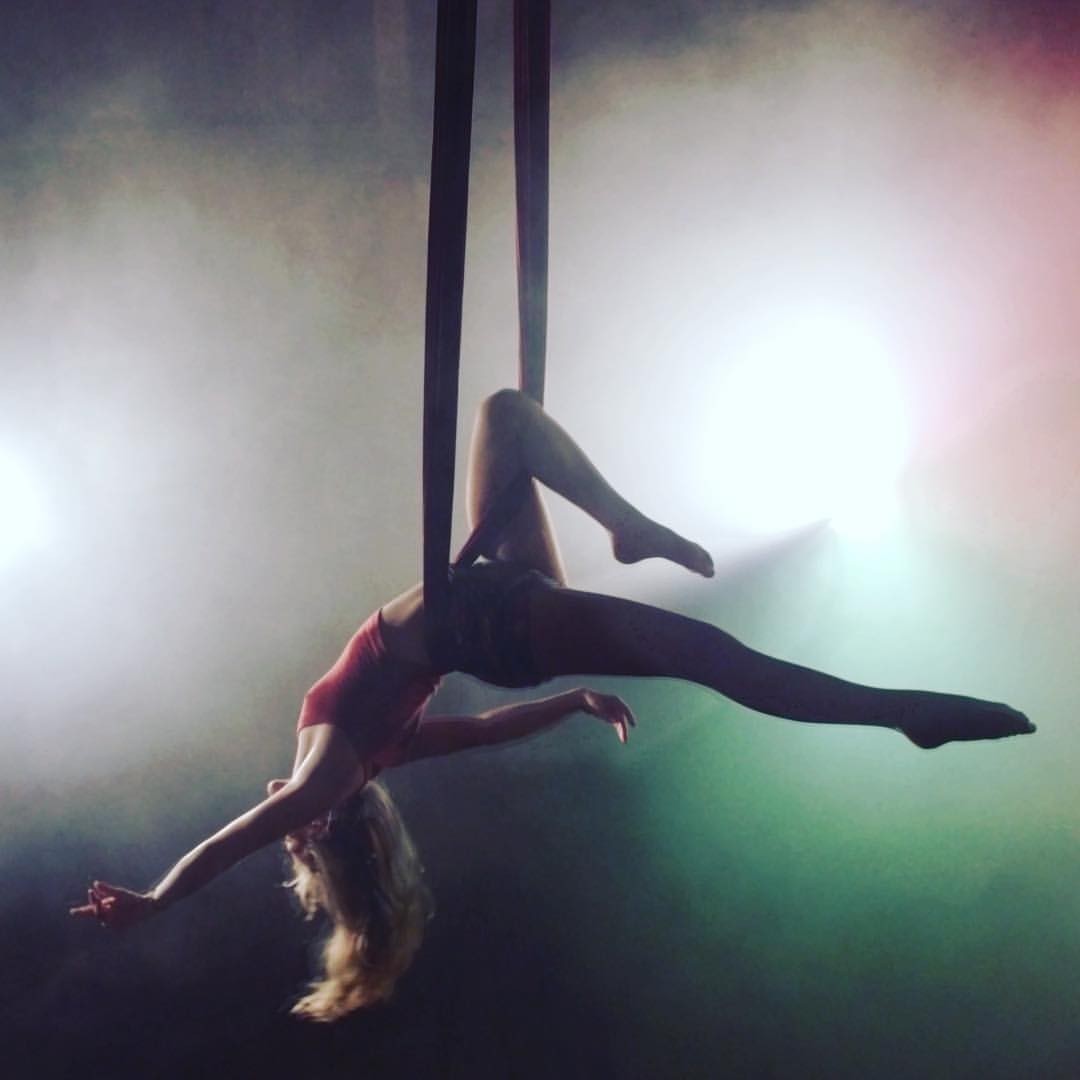
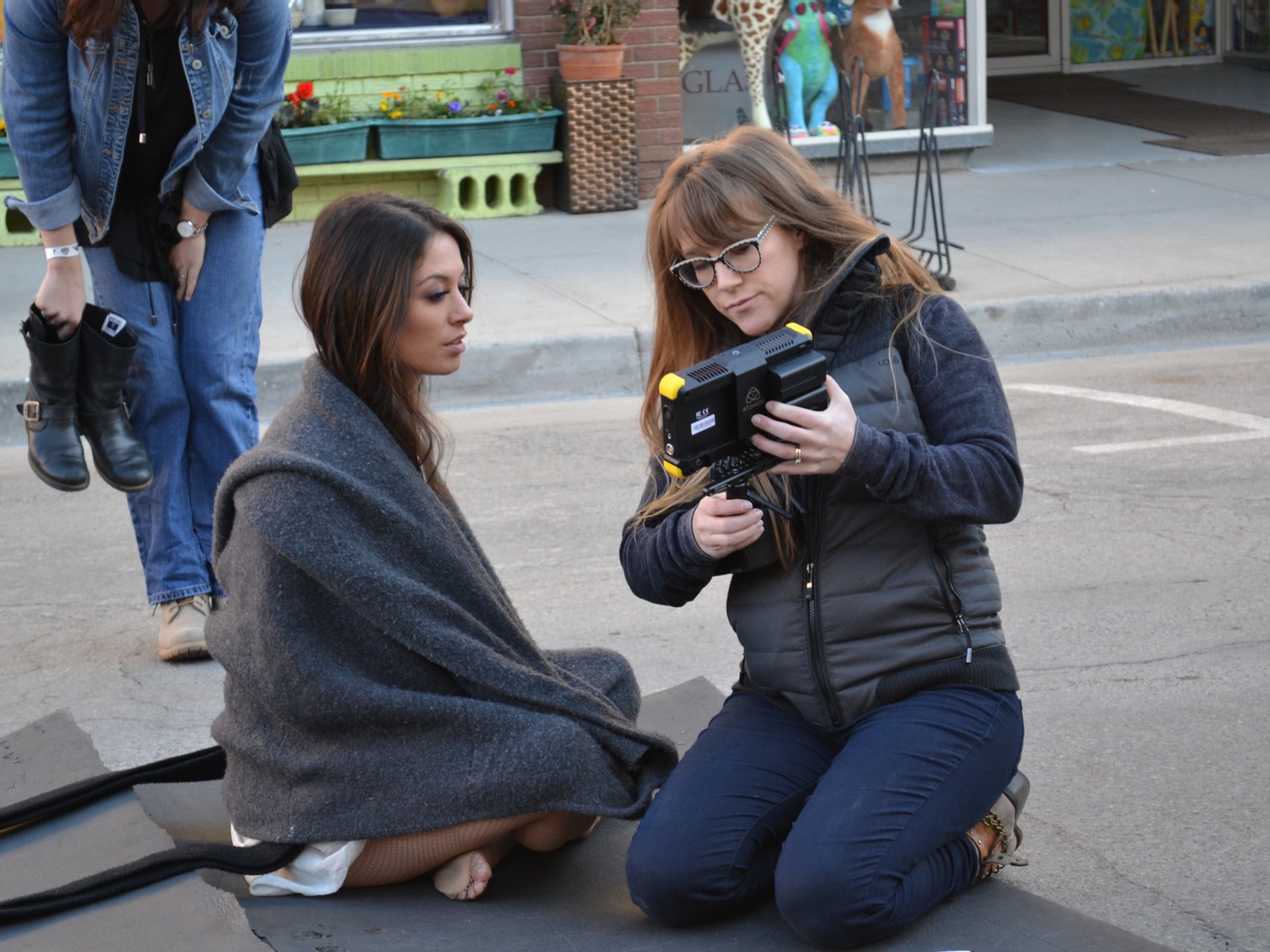
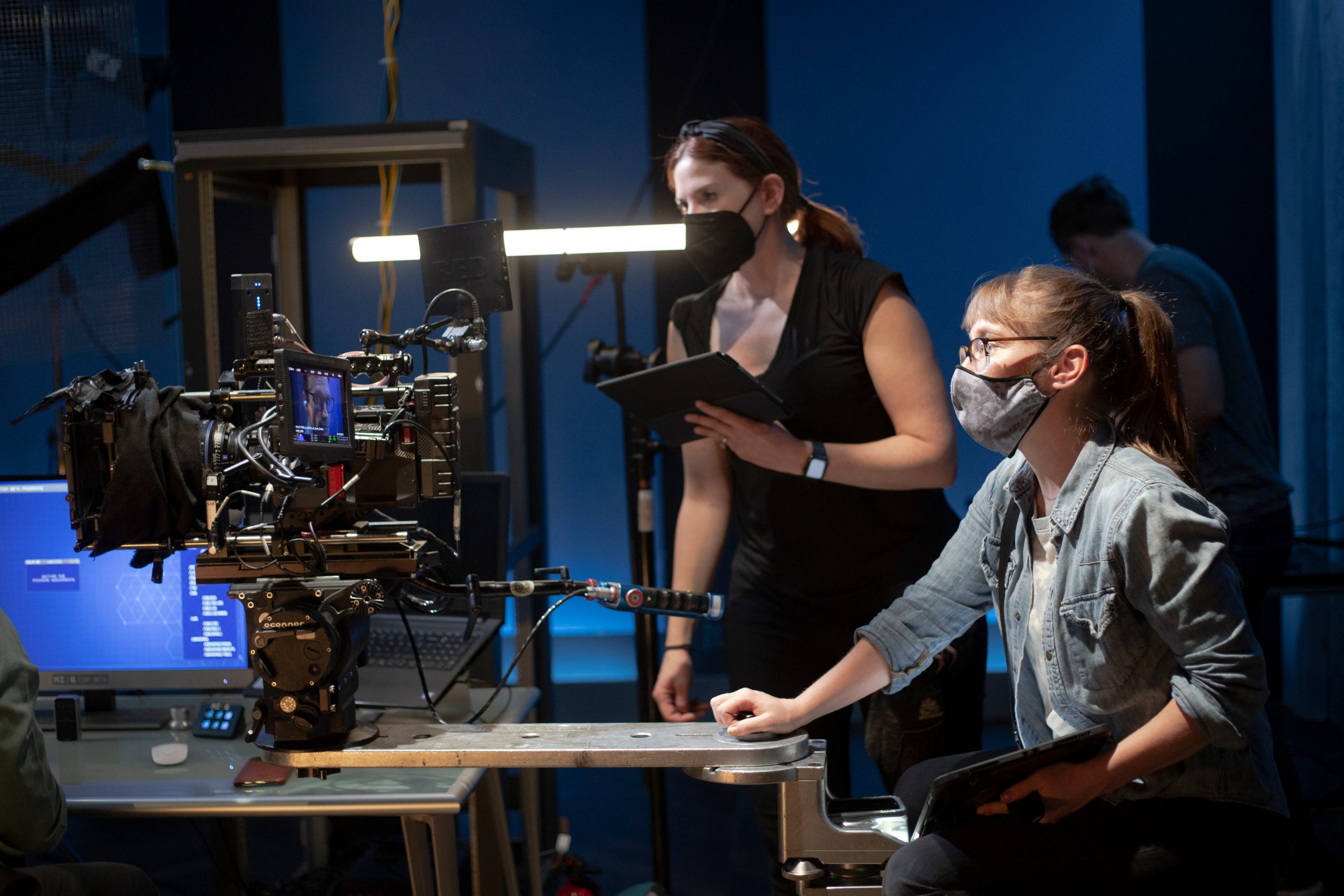
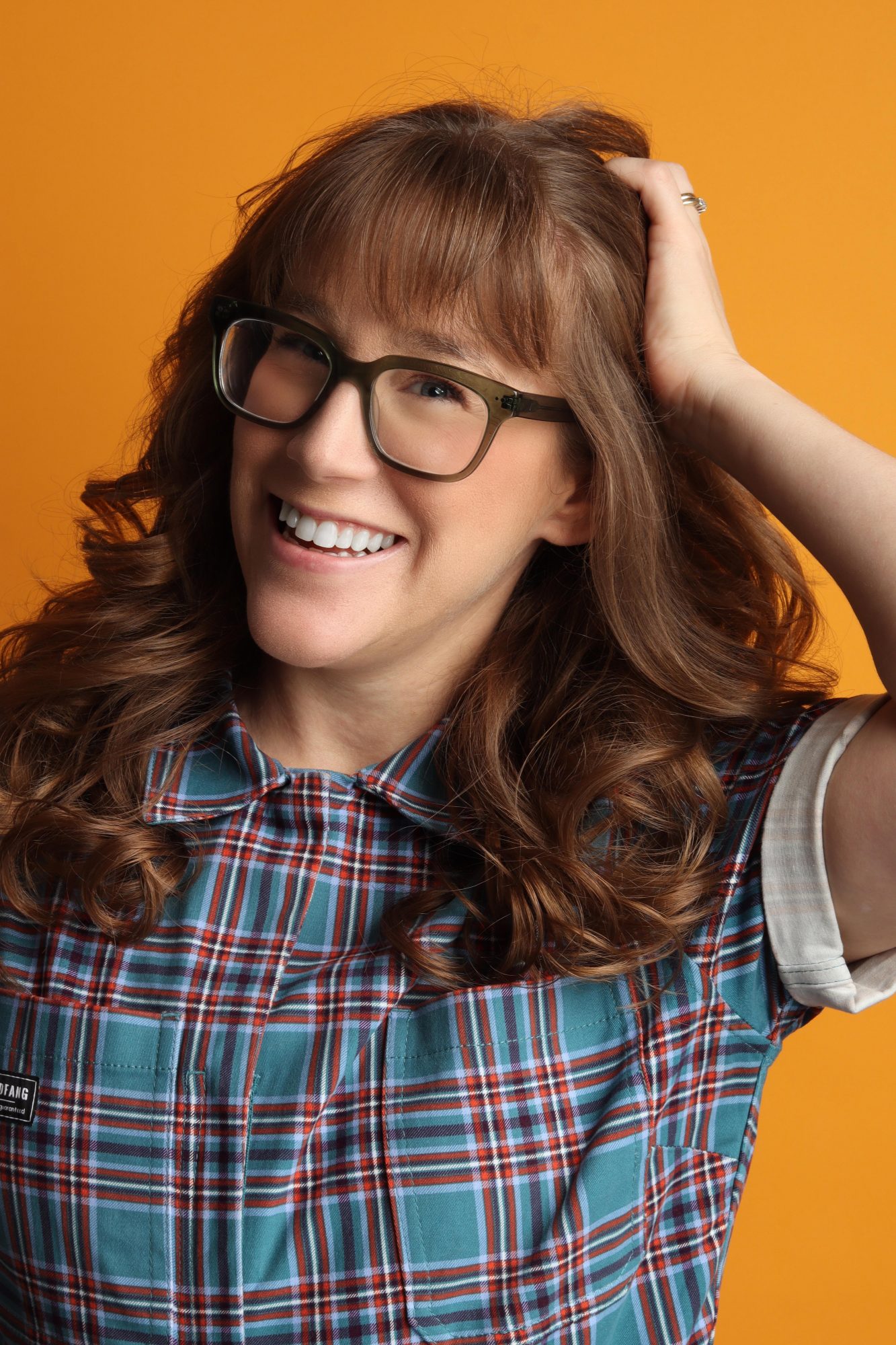
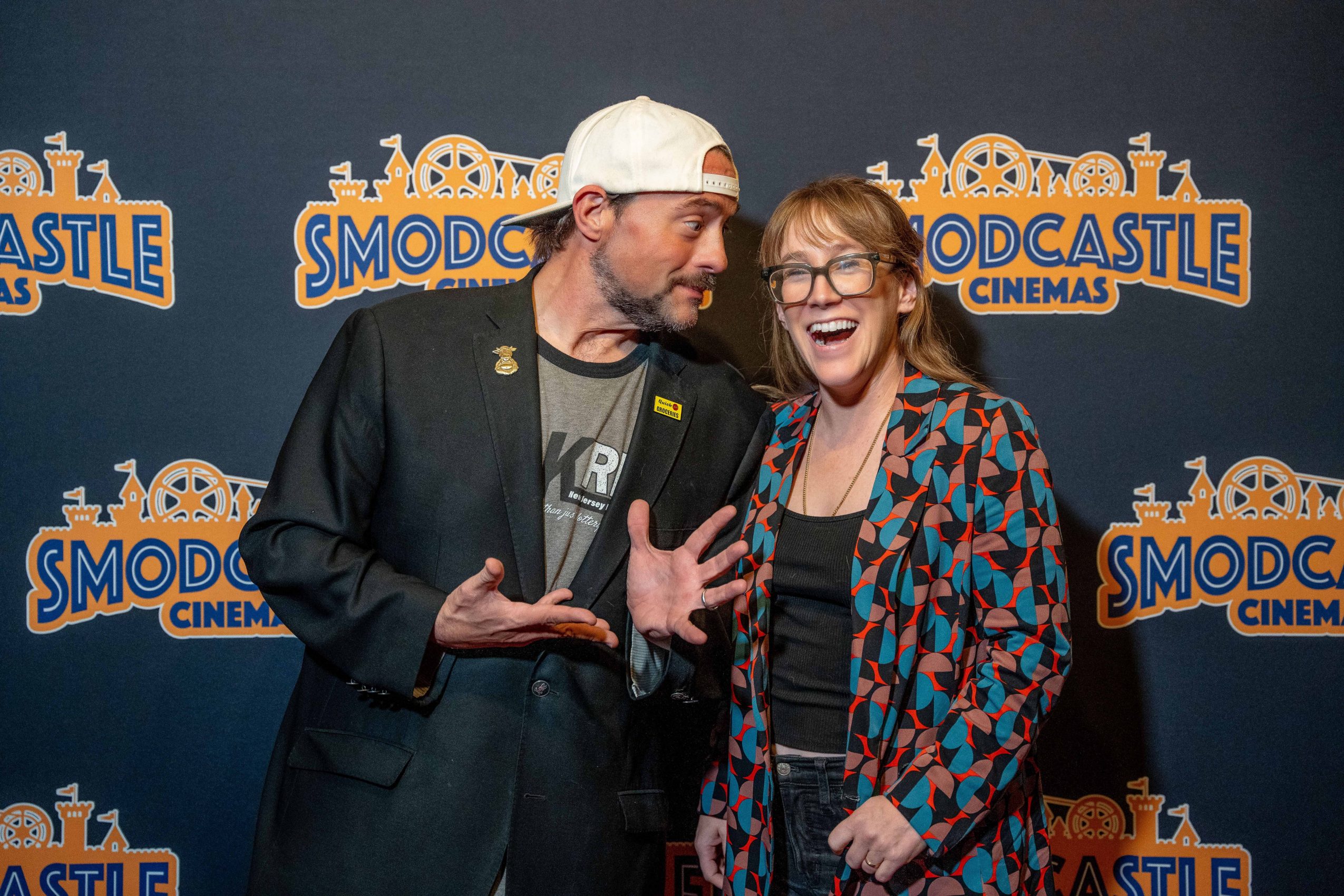 Image Credits
Image Credits
The one with Kevin Smith was taken by John Vitollo in 2022 The one with me walking down the aisle was also taken by John Vitollo in 2022 The one with the orange background was taken by Yessi Sanchez in 2022 The one with me masked at the camera was taken by Samara Ehlke in 2021 The one that looks like a vanity fair picture was by Emily Sandiffer in 2022 The one on the Red carpet at Salute Your Shorts was taken by Jon Kopaloff in 2022 The one of Selkie and I looking at the monitor on the set of Human was shot by Michael Meyer in 2019. The one of me doing Aerial was shot by Eric Monroe in 2016











